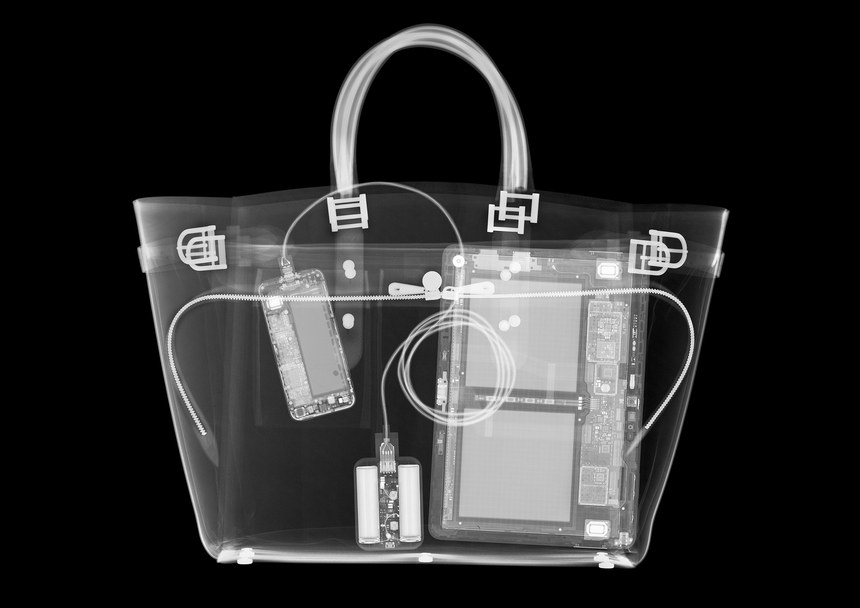Since President Trump’s executive order banning travelers from several Muslim countries, passengers have experienced an increase in devices seized by customs officials.

American Civil Liberties Union attorney Nathan Wessler said that more reports of customs agents demanding passwords to mobile devices, as well as social media accounts, have been seen. Additionally, newly sworn-in Department of Homeland Security Secretary John Kelly told Congress that the agency wants to require foreign travelers from seven Muslim-majority countries to supply their social media passwords or not be let in.
But even citizens aren’t immune. U.S. Customs and Border Protection agents have detained and taken devices right from the hands of journalists, filmmakers, and security researchers.
As these intrusions become more common, we’re going to have to establish ways to preserve our digital privacy while crossing American borders.
Lock down devices
If customs agents take your devices, don’t make it easy for them. Encrypt your hard drive with BitLocker, TrueCrypt, or Apple’s Filevault, making sure to select a strong passcode. On your iPhone, create a secure PIN and disable Siri from the lock screen by turning off “Access When Locked” under the Siri menu in Settings.
Additionally, remember to turn off devices before going through customs; hard drive encryption tools only provide you with full coverage when a computer is fully powered down. For those who use Touch ID, your iPhone is safest powered down as it requires a PIN when rebooted. It’ll be a relief to green card holders because they have an obligation to give their fingerprints with every border crossing.
Keep passwords undisclosed
According to Wessler, American citizens cannot be deported for refusing to give up encryption or social media passwords. While you may be detained and your device confiscated, you’ll eventually get through with your privacy intact.
“They can seize your device, even for months while they try to break into it,” said Wessler. “But you’re going to get home.”
But do know that denying custom agents access to your devices can lead to hours of detention, and for visa and green card holders, the right to enter the U.S. may be even less clear.
Call home and prepare
Before entering customs, call home and alert either a lawyer or loved one who can contact an attorney. After you get out, contact them again. If you’re detained, you most likely won’t have access to your devices. And in cases of a lengthy detention, you’ll want a lawyer legally representing you and advocating for your release.
Create a travel kit
The best way to keep customs away from your data is to not even carry it. Rather, set up travel devices that store the minimum of delicate data. Don’t link these devices to your personal accounts, and if you are forced to create a linked account (such as iTunes for iOS devices), make new ones with unique usernames and passwords.
Social media accounts, on the other hand, can’t be ditched as easily. Security experts suggest creating secondary accounts that can be offered to customs officials, in order to keep a more personal account secretive. However, if agents do identify you with an account that you tried to hide, the result could be longer detention or even denial of entry.
Deny yourself access
Rather than telling customs agents that you won’t give them access to your accounts, say that you can’t . An extreme method is to set up a two-factor authentication for your personal accounts, so in order to access them, you must enter not only a password but also a code sent to your phone via text message. Before crossing the border, be sure that you don’t have the SIM card that lets you or customs receive that text message. Forensics expert Jonathan Zdziarski suggests that you mail yourself the SIM card or destroy it and recover the accounts with backup codes that you leave at home or keep in an encrypted account online.
“If you ditch your SIM before you approach the border, you can give them any password you want and they won’t be able to get access,” Zdziarski said.
Privacy rights for digital devices at the border will remain an issue until a precedent is set. Currently, the government has the power to open any bags crossing into its territory and even ransack through cars, searching for contraband. The primary issue remains that there is no set of protections for your digital privacy.
Source: Wired
Advertisement
Learn more about Electronic Products Magazine





